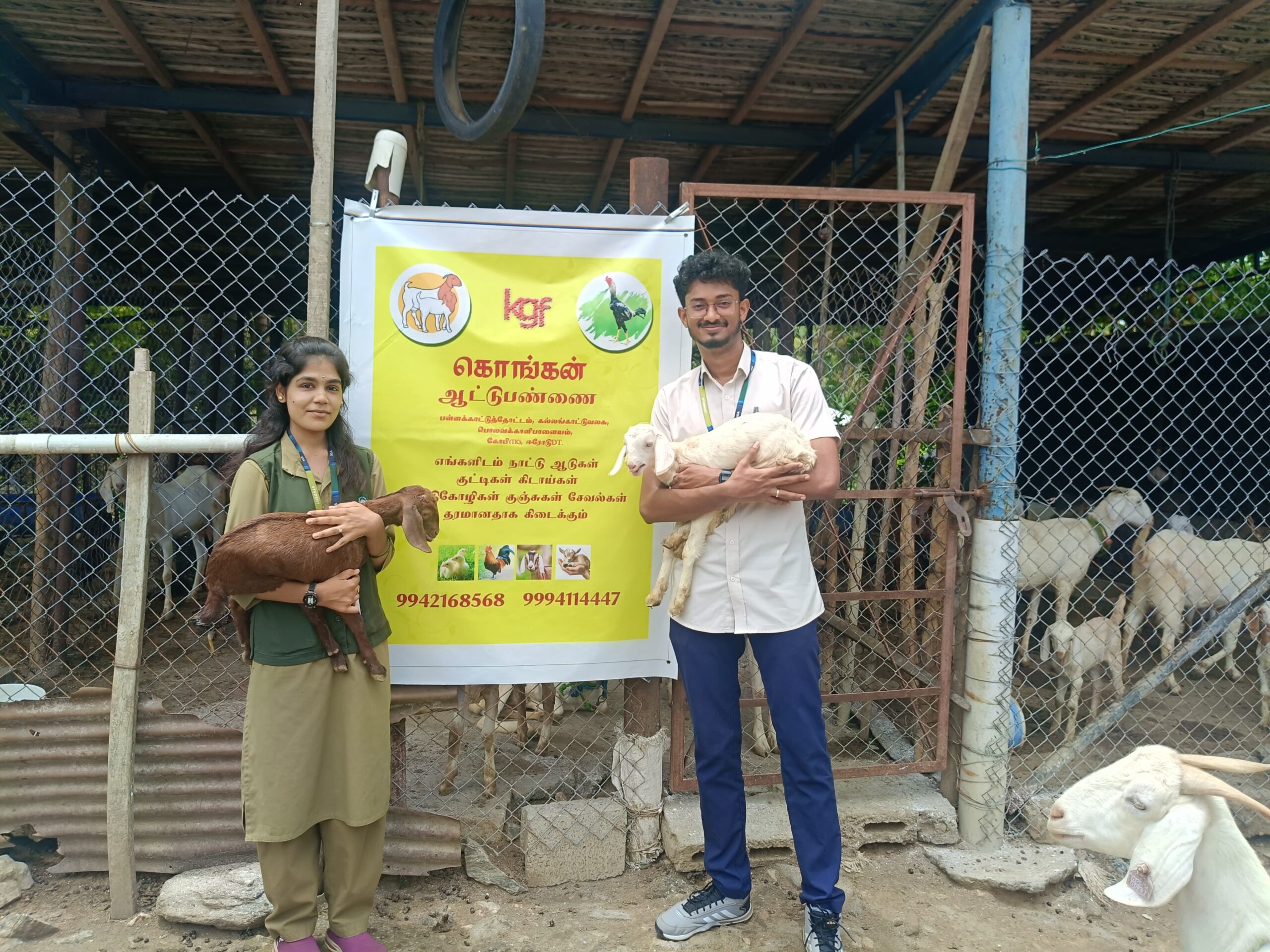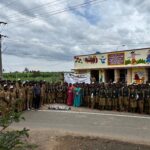From Struggle to Success: A Family’s Transformation through Livestock Farming

In Gobichettipalayam, Erode District, Tamil Nadu, we met Mrs. Loganayagi and her family of four: her husband, Mr. Selvam, their elder daughter Akalya, who is currently pursuing a degree, and their younger daughter Amirutha, a student in 8th standard. Both daughters actively support their parents in farming activities.
Twenty-three years ago, Mr. Selvam worked as a daily wage laborer but found little satisfaction in that job. At the same time, he cultivated banana on their 3.5 acres of land. In 2002, an unexpected storm devastated their crop, resulting in significant losses. Despite these setbacks, the family remained hopeful. Driven by resilience, Mr. Selvam decided to venture into goat farming. He started with just two goats, and with the enthusiastic support of his wife and daughters, gradually expanded the herd. Over time, the herd grew to 10 female goats and 1 male goat, and eventually to 60 goats and 40 kids.
A year ago, Mrs. Loganayagi became a member of the Pariyur-Fed Farmers Producer Company Limited, a women-centric FPO. The FPO provides valuable support by offering a three-month Climate Smart Dairy Entrepreneurship Programme, in which Mr. Selvam and his younger daughter actively participated. They gained essential knowledge, especially in digital marketing strategies, which became a turning point for their livestock business. Naming their enterprise “Kongan Goat Farm (KGF),” they began promoting their farm on social media with the help of their daughters. This new approach attracted many visitors and customers to their farm.
In addition to goat farming, the family also rears two Red Sindhi crossbred dairy cows and maintains 170 indigenous poultry birds. Their entire 3.5 acres are dedicated to cultivating green fodder, such as mulberry, guinea grass, COFS-31, and subabul, to support their livestock organically. They prepare their own nutrient-rich animal feed using local grains like maize, bajra, sorghum, and legumes, which helps ensure animal health while significantly reducing feed costs.
Aiming to provide quality milk directly to consumers and secure better prices, Mr. Selvam introduced the concept of “Ulavan Thottathu Paal.” Under this model, fresh milk is poured into portable containers and sold directly to consumers. Previously, when supplying milk to the local cooperative, he received about Rs.30–35 per litre. With this direct sales approach, he now sells milk at Rs.50 per litre, bypassing middlemen and adding value through trust and freshness.
They earn Rs. 30,240 per year from the Ulavan Thottathu Paal initiative, Rs. 1,20,000 per year from poultry, and Rs. 9,78,000 from the Kongan Goat Farm (KGF), resulting in a total annual income of Rs. 11,28,240.
The journey of Mr. Selvam and his family stands as a shining example of resilience, innovation, and the power of continuous learning. Their story serves as an inspiration to smallholder farmers everywhere, encouraging them to dream big and build a better future through agriculture and animal husbandry.
Published by: K. Sweety, Ra. K. Krishna Priyan, II Year Students





